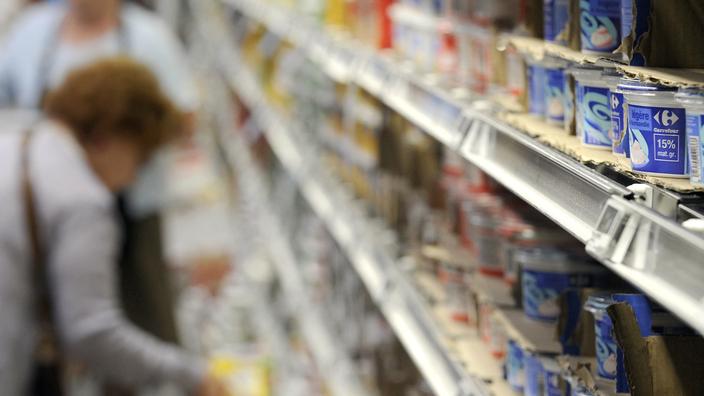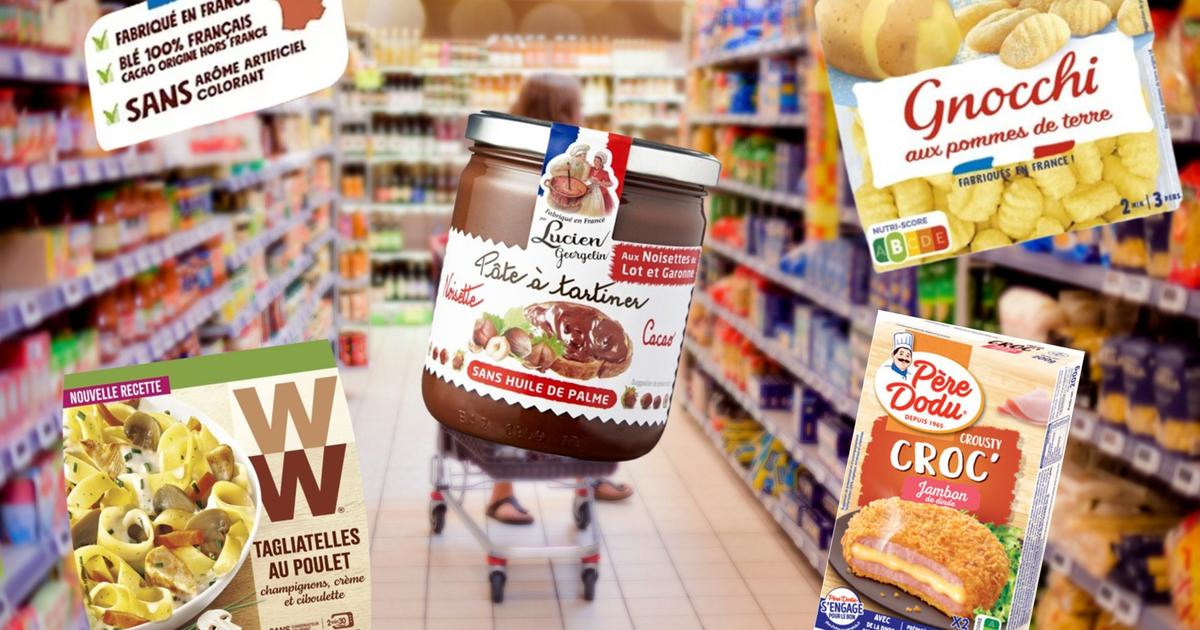Eco-score, global score, red label, Fairtrade, AOC, organic, made in France ... we no longer count the labels affixed to consumer products.
These logos, supposed to certify the ethical, environmental or product quality commitment, have multiplied in recent years, at the risk of becoming counterproductive and losing the consumer.
To read also: How to be sure to buy a good chocolate?
These issues, Patrick Mercier, president of ADÉIC, one of the most influential consumer defense associations, knows them well.
Over the past twenty years, his association has observed the proliferation of these labels which, gradually, “
appeared around the 1990s
” and then “
exploded around the 2000s
”.
For the president, this multiplication is concomitant with a
growing
“
distrust
” of consumers towards industrialists.
After the many food scandals, and the reports to charge, producers must now show white paw, by providing proof of the quality of their products.
Despite the many labels, the trust between the two parties continues to deteriorate.
A paradox that Patrick Mercier observes on a daily basis: "
while the consumer is better and better defended, he becomes more and more worried
".
Ultimately, awareness of the conditions of production leads to a "
generalized loss of confidence, which makes everything doubtful
".
The reasons for such a failure?
“
Too many labels kill the label (…) because we have too much information, we no longer manage to assimilate them.
This overinformation misinforms.
Ultimately, people no longer know what they are consuming,
”analyzes the president of the association.
False labels and self-proclamation
And some manufacturers do not hesitate to take advantage of this vagueness around certifications to affix “
false labels
”
to their products
and “
advertise themselves
” at a lower cost.
"
There are more and more self-proclaimed labels which concern consumer products
", the president of ADÉIC cites in particular as examples the acronyms "
Products of the year
" and "
Flavor of the year
".
The latter highlight the fact that they are awarded by the consumers themselves but "
everything depends on the questions asked and the treatment of the answers, which are also subjective
" notes the president.
Olivier Andrault, food officer at UFC Que Choisir, agrees with his colleague's observation, but more broadly denounces all the labels or ratings awarded by the brands themselves or pseudo-independent organizations.
“
By dint of playing it personal with each his own little rating, we create a cacophony in terms of logos and it is then impossible to compare the products
”: the challenge is therefore to harmonize these ratings to create a frame of reference.
Nutriscore: improve readability
This was partly the ambition of a rating like Nutri-Score.
Launched in 2017 by Santé Publique France, the nutritional logo has been a real success with consumers and businesses: one in two French people say they have changed at least one shopping habit thanks to this rating and nearly 500 companies have adopted it. according to the 3-year assessment published in February 2021 by the public health body.
At a glance, with a color code and numbers, the consumer can compare the nutritional value of products.
Read also: A European petition for the EU to make “Nutriscore” compulsory
If the tool is, in absolute terms, progress for the consumer, the UFC Que Choisir detects many limits.
First of all, in principle, “
this tool places the responsibility on the consumer
”.
Having such a rating is proof that there is "
a form of irresponsibility on the part of industrialists and a form of resignation from public authorities
" judges Olivier Andrault.
For the latter, the French authorities lacked political courage, it was quite possible to ban these products or to force manufacturers to modify their recipes, as "
in England where the Ministry of Health has defined mandatory targets on the levels of fat, sugar and salt
”.
Beyond this substantive opposition, Nutri-Score remains a great help according to consumer associations.
Without such an indicator "
an industrialist has no interest in modifying his product because to change recipes it is necessary to incur R&D costs and this is a considerable risk if the competition does not also take this turn
" explains Olivier Andrault, who notes the virtuous loop that the Nutri-Score can create in the companies which adopt it "
it is very effective, there is a strong internal pressure to improve the products
".
Some distributors are already successfully integrating the tool into their specifications: “
Nutri-Score is part of our tender briefs: our objective is to develop products with a Nutri-Score at least equivalent to the market, or even better,
”declares Auchan Retail to
Le Figaro
.
However, this frame of reference is not mandatory for the moment.
Blockages on a European scale prevent its generalization, these are in particular due to "
very reassembled industrialists
who"
build coalitions
"and" put
pressure on the ministries
".
A general desire for transparency
However, even if the Nutri-Score were made compulsory, this indicator being limited to the nutritional aspect of the products, would not respond to the generalized desire for transparency which “
has been exacerbated by the pandemic;
there are now high expectations among consumers about the environment, the origin of products, and even animal welfare, ”
Karine Perrot, Consulting Director of Kantar, a firm specializing in marketing studies,
explains to
Figaro
.
To meet these expectations, some applications and sites attempt to synthesize information via data and promise
"to decipher the indecipherable"
like the Yuka guarantee, the famous application, in a press release.
To believe these new players, and while waiting for political measures, it would seem that our smartphones remain our only allies to get out of the jungle of labels.







